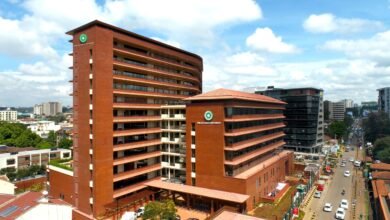
Ease of Doing Business Index ranks countries against each other based on how the regulatory environment is conducive to business operations.
Kenya embarked on the Ease of Doing Business reforms implementation plan since 2014 with a significant milestone witnessed in the World Bank Ease of Doing Business Report- 2020, where Kenya was ranked 56th out of 190 countries for the period 2019 globally up from position 136th in 2014.
Kenya was Africa’s 3rd position after Rwanda and Morocco ranked 38th and 53rd respectively globally.
Only Tunisia, South Africa, Zambia and Botswana joined the list of top 100 countries with ease of doing business from Africa. New Zea Land, Singapore and Hong Kong (China) were positions 1, 2 and 3.
The 4th Schedule of the Constitution has assigned more than half of the parameters considered in the ranking to the county governments. The county governments are naturally expected to work with the National Government in improving the ranking for better score towards attracting investors and making business more friendly in the country for the enterprises to invest and thrive.
As the 8th devolution conference came to an end, the counties need to take stock of a decade’s gain in specifically supporting enterprises, which is the key sector towards economic development.
President William Ruto’s administration came as a ‘hustler government’ dedicated to supporting the MSMEs towards increased growth and investment thus creating the much needed jobs.
Key to this is for the counties to develop a data base of the MSMEs operating within their jurisdiction and from this point, develop policies and make evidence based decisions based on the available data.
The country continues to use the 2016 MSME survey done by the KNBS which has greatly weathered after the economic ups and downs including the Covid-19 pandemic experienced in 2019 and 2020.
The data base should be comprehensive enough to answer various questions of intervention amongst various economic sectors.
The MSME database will be a key document the counties would use in its pitch to partners like commercial banks in luring them to put more investments in infrastructure and credit into their economy. Other developing partners keen to support in specific areas would find it easy and thus increasing the support.
Once the MSME comprehensive database is identified, then the county can develop a policy to promote the businesses in diverse fields, answering questions like how many businesses require training and on what kind, how many businesses would require government incentives and what supportive infrastructure to better performance among others.
The counties would further embark on the harmonization of fees and charges levied to the MSMEs and deliberately decide to support through the reduction of time spent in delivering a government service that include payment of SBP, getting various approvals including building, demarcation and the rest.
All county services including approval of real estate value chain should clearly be communicated and automated to reduce turn around time and eliminate frauds and bribery in the sector.
Consequently, counties should develop a framework for enhanced collaboration between the Counties, National Government MDAs and Private Sector Association.
The county executive should initiate the Governor’s Roundtable-multi-stakeholder forum to enhance collaboration, particularly in the sector forum.
This will help set a common agenda for the county geared towards supporting enterprises and ensuring all agents within the county give their full support to the MSMEs’ growth.
Lastly, the Counties should dedicate to settling the more than Ksh.159 billion worth of pending bills owed to the suppliers of goods and services and the works done. This will inject equivalent liquidity into the economy and trigger more investment for economic growth and development.





